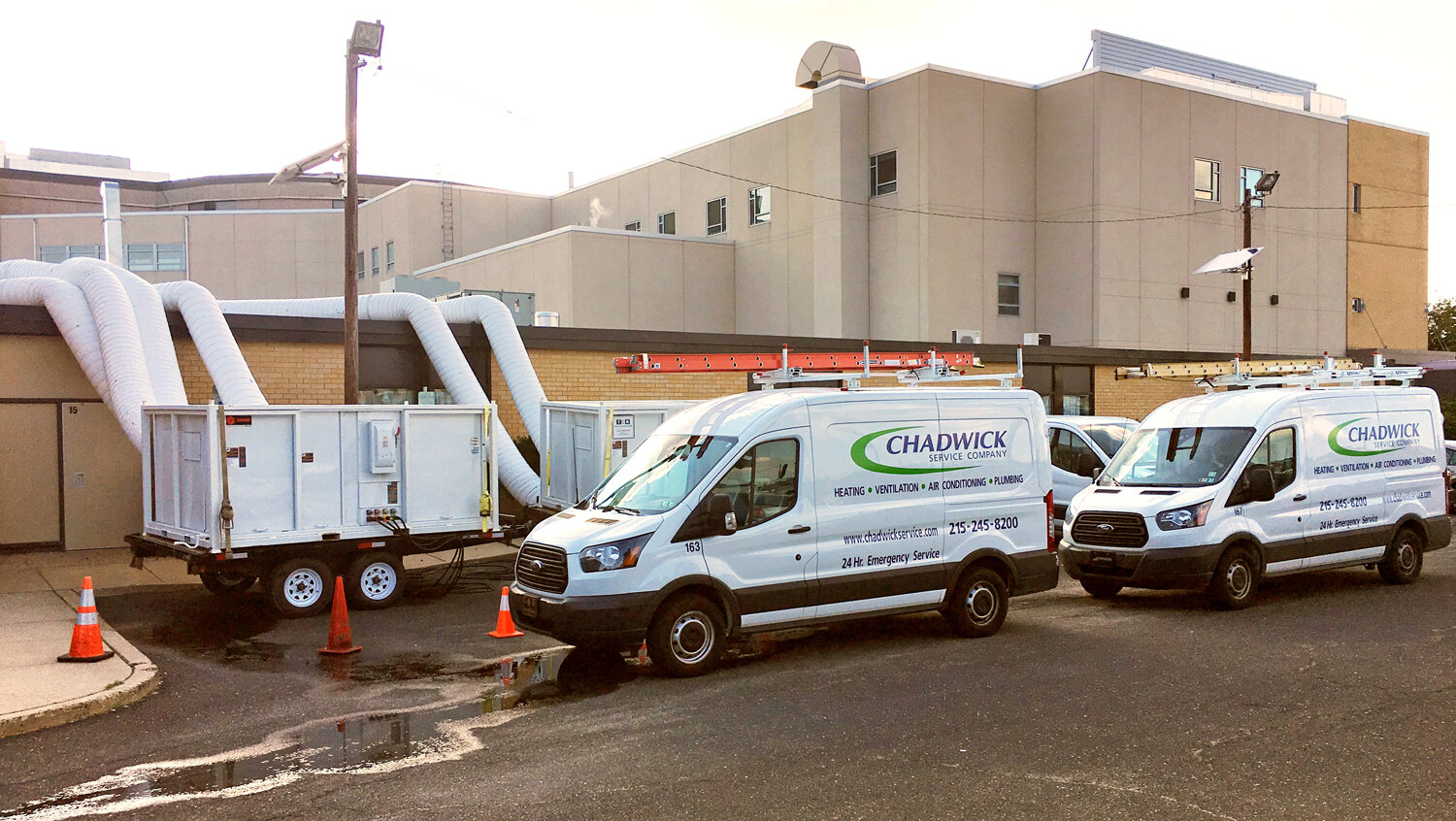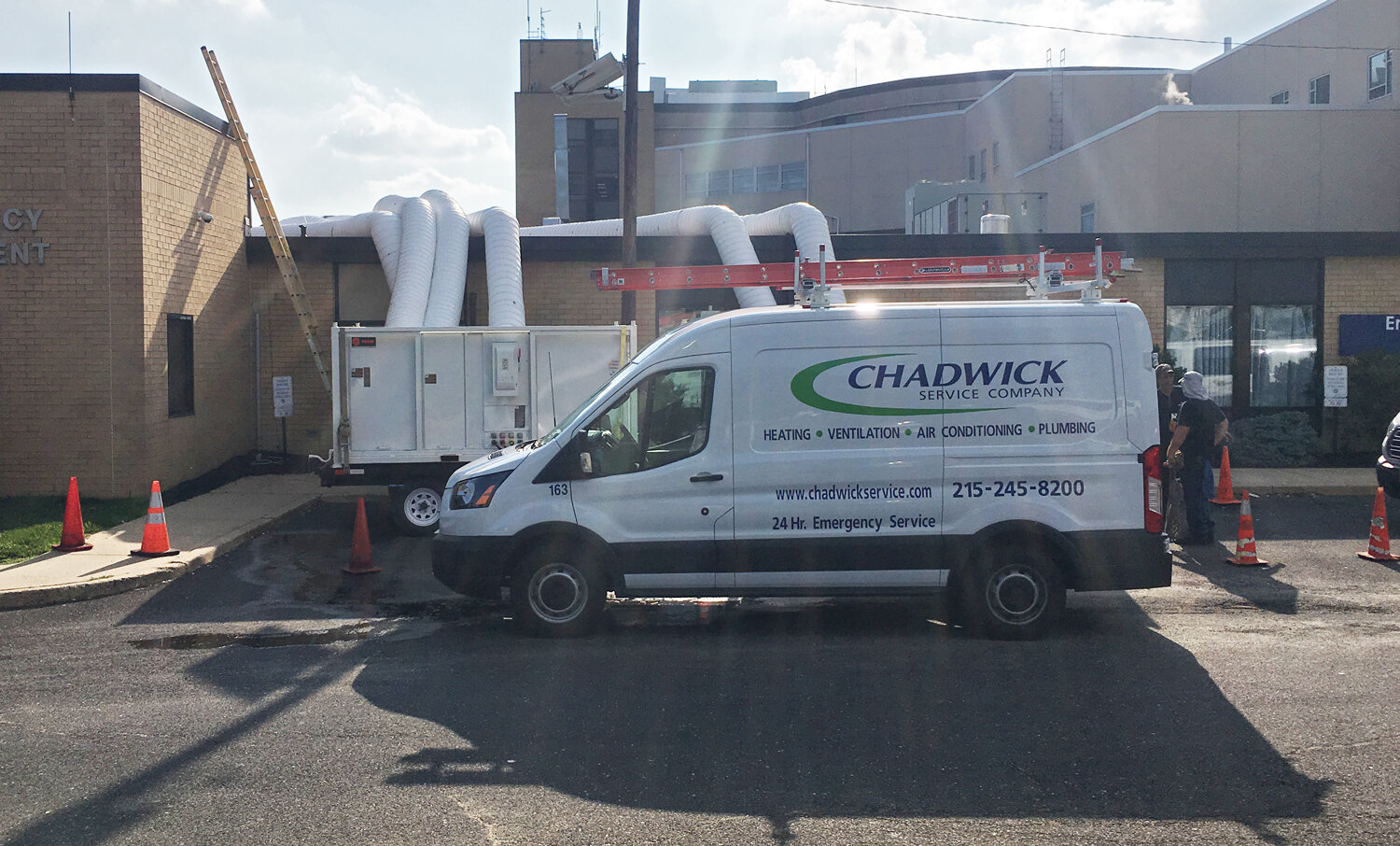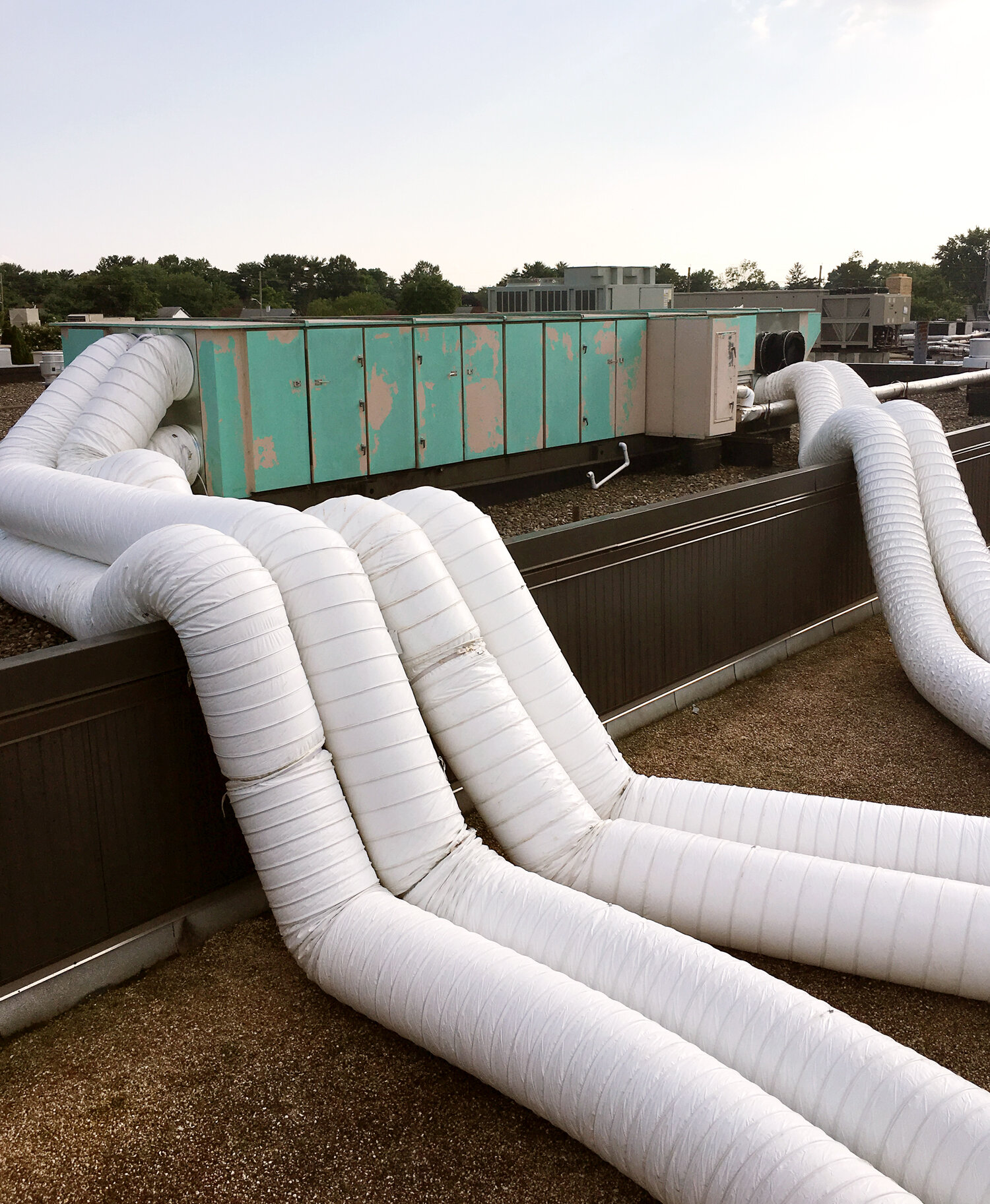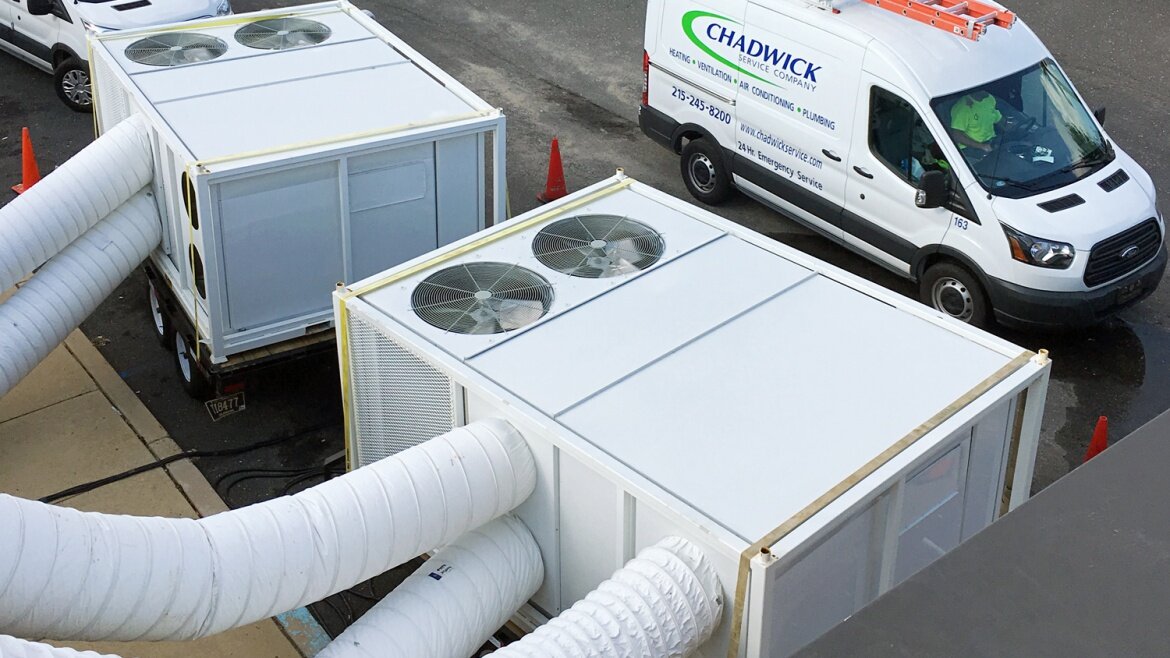How To Know If Your Commercial HVAC System Is Failing
A hospital in New Jersey had a serious problem – their commercial HVAC system crashed during a July heatwave. It’s not hard to imagine how serious this is for a healthcare facility. Uncomfortably high temperatures can put their patients’ health at risk, create difficult working conditions for staff, and compromise sensitive equipment.
Fortunately, the hospital was a client of Chadwick Service Company, so they called us immediately. We arrived within 30 minutes and discovered that the HVAC system was in pretty bad shape – due to the age of their system, the blower wheel, bearings and shaft had failed, and it also needed a new compressor. Not an easy or quick job.
In order to maintain comfort in the hospital while the lengthy repairs were completed, we delivered temporary HVAC units on trucks. Then our HVAC technicians tied 2 temporary return ducts into an existing HVAC roof unit and tied temporary supply ducts into the current supply ducts. Within 3 hours we had the hospital’s internal air back to a comfortable level while we waited on a new compressor to complete the repair.
How to know if your commercial HVAC system is beginning to fail.
It’s not unusual for large HVAC systems to fail – or at least fall behind – during temperature extremes in summer and winter, especially if they’re nearing the end of their rated life expectancy. Here are a few indicators:
Your company’s utility bills are suddenly rising. An HVAC system becomes less efficient as it ages, and the individual components have to work harder to produce the same level of comfort. This results in more electricity use and more wear and tear on the components, and they eventually fail.
Not every room is equally cool or warm. Uneven heating or cooling is a really good sign that something in your HVAC system isn’t working correctly. You should not need to adjust the thermostat frequently.
Your HVAC system is getting noisy. Squeaks, thumps, bangs, and other noises are not normal and can indicate imminent failure.
You smell unusual odors. Moldy smells or chemical smells coming from vents or rooftop units are an immediate concern and may indicate a very serious problem.
Moisture on walls or windows. Indicates inefficient cooling or heating and poor air quality. Something in your system is failing.
If you notice any of these problems, you should call your HVAC company immediately for an inspection. Never ignore warnings like this, as your indoor air quality is quickly compromised when equipment begins to fail. You can avoid an HVAC system failure with regular maintenance inspections to discover potential problems before they occur.






